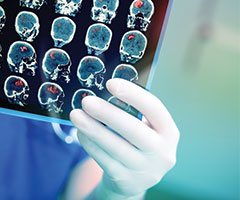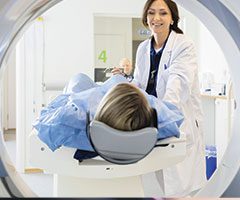Kidney Cancer
What is kidney cancer?
The kidneys are responsible for filtering waste products from the blood and producing urine. Kidney cancer is also known as renal cell carcinoma, and the cause of cancer is unknown but certain lifestyle and risk factors can contribute. This includes smoking, obesity, high blood pressure, and a family history of the disease. Kidney cancer typically appears in patients over the age of 65, and men are twice as likely than women to experience this.
What are the different types of kidney cancer?
Cancer can begin in one or both of the kidneys forming a tumor, it can grow in one spot (benign) or spread to other parts of the body (malignant). Depending on the growth of the cells, there are several types of kidney cancer. Some of these types are:
- Renal cell carcinoma- the most common type
- Urothelial carcinoma
- Sarcoma
- Wilms tumor
- Lymphoma
What are the signs or symptoms of kidney cancer?
It is important to know the symptoms may be caused by other conditions and vary from person to person. Some individuals have reported not experiencing symptoms until an early detection spotted the beginning signs. Common signs of the disease include:
- Pain in the lower back or side
- A lump or mass growing in the abdomen
- Blood in urine when peeing
- Unexplained weight loss
- Feeling fatigue and less energy
- Nausea and fever
How is kidney cancer treated?
Treatment options rely on a number of variables, such as the cancer's stage, cell type, potential side effects, patient preferences, and general health. Talk with your urologic oncologist about the different treatment options for you. Your treatment plan may include one of the following:
- Robotic Kidney Surgery
- Non-surgical treatment
- Immunotherapy
- Chemotherapy
- Radiation therapy
Imaging Tests: Diagnosing Kidney Cancer
Your doctor will recommend one of the following imaging tests to view the kidney. These imaging tests will determine the kidney tumor's attributes and determine whether the cancer has spread to other parts of the body.
-
Computed Tomography (CT Scan)
CT scans use a computer to combine multiple x-rays to create a 3-D image of soft tissue, bones, organs and blood vessels.
-
Magnetic Resonance Imaging (MRI)
MRI is a painless imaging procedure used to help your physician diagnose a wide variety of conditions. In many cases, it provides different information about structures within the body that can’t be viewed through other imaging procedures.
Kidney cancer treatment at the Lee Health Cancer Institute
In an uncertain time, the Lee Health Cancer Institute provides unparalleled expertise, cutting-edge treatment and access to innovative technology. But above all else – it’s the human connection and commitment that sets us apart.
When you come to us, our staff gets together in one room to review your case. We go over all the details with you right next to us – after all, you are the most valued member of the team.
-
Cancer Institute
Start your cancer care journey here. An umbrella for all of Lee Health's state-of-the-art cancer care options.
-
-
Richard M. Schulze Family Foundation Cancer Clinic - Bonita Health Center
3501 Health Center Blvd Estero, FL 34135
Click 'show more' to view all physicians















